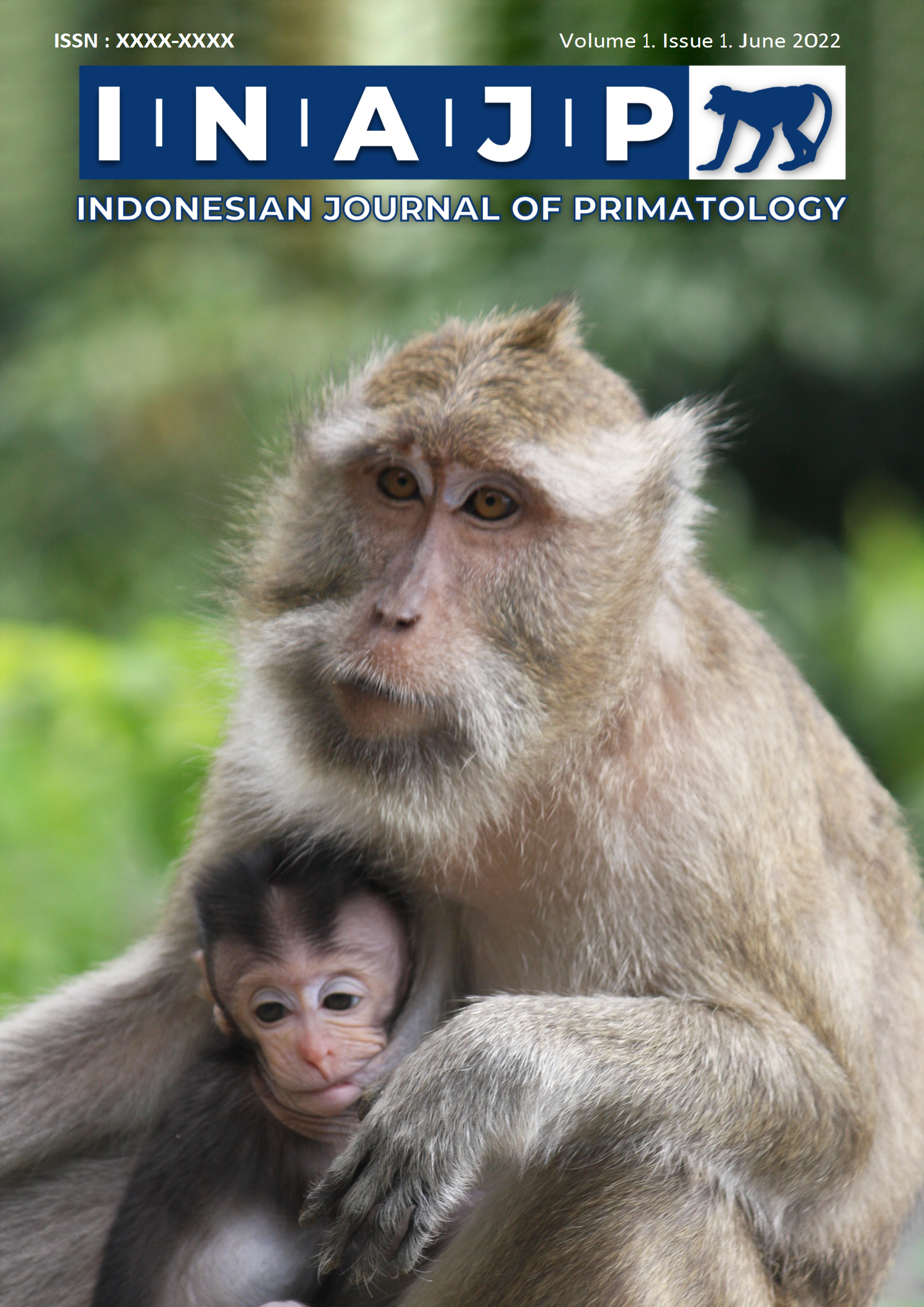Sexual Behaviour of Long-Tailed Macaques (Macaca fascicularis) in Semi-Natural Captivity, Tinjil Island, Indonesia
Abstrak
The long-tailed macaques (Macaca fascicularis) is a primate species widely used in ecology, socio-economics, and biomedical. Long-tailed macaques have a high degree of adaptation to various types of environments. This species can be used and traded as long as it is the product of captivity. Over time, with increasing demand, there is a tendency to increase the number of long-tailed macaques catch quotas from nature and reduce the habitat of these primates in Indonesia. This demand causes the need for a conservation effort to increase the long-tailed macaques’ population outside their natural habitat. Tinjil Island is a semi-natural breeding place managed by the Primate Research Center (PRC), LPPM IPB University. We studied this area to observe the long-tailed macaques’ daily behaviour. We observed sexual behaviour with the ad-libitum method. Overall, the frequency of each stage of sexual behaviour carried out by the long-tailed macaques is genital inspect by 20% (for 12 seconds), male mounts by 9% (for 5 seconds); intromission by 44% (for 26 seconds), ejaculation success by 17% (for 10 seconds), vocalization by 7% (for 4 seconds), and running by 3% (for 1.6 seconds). Success in sexual behaviour is influenced by the sex age of primates, the period of lust, and food availability. This study is expected to provide information on sexual behaviour that can support reproductive success and successful reproductive management of long-tailed macaques in captivity.
As our aim is to disseminate original research articles, hence publishing rights is necessary. The publishing right is needed in order to reach an agreement between the author and publisher. As the journal is fully open access, the authors will sign an exclusive license agreement, where authors have copyright but license exclusive publishing rights in their article to the publisher. The authors have the right to:
- Share their article in the same ways permitted to third parties under the relevant user license.
- Retain patent, trademark, and other intellectual property rights including research data.
- Proper attribution and credit for the published work.
For the open access article, the publisher is granted the following rights.
- The exclusive right to publish the article, and grant rights to others, including for commercial purposes.
- For the published article, the publisher applied for the Creative Commons Attribution-NonCommercial-ShareAlike 4.0 International License.

This work is licensed under a Creative Commons Attribution-ShareAlike 4.0 International License.















